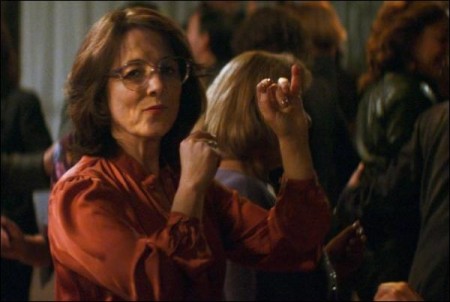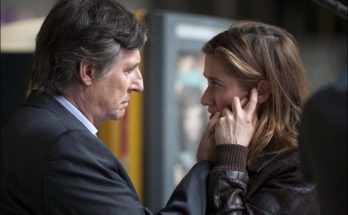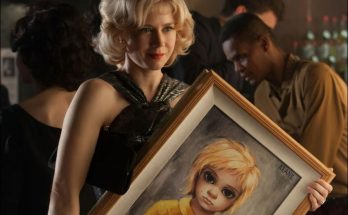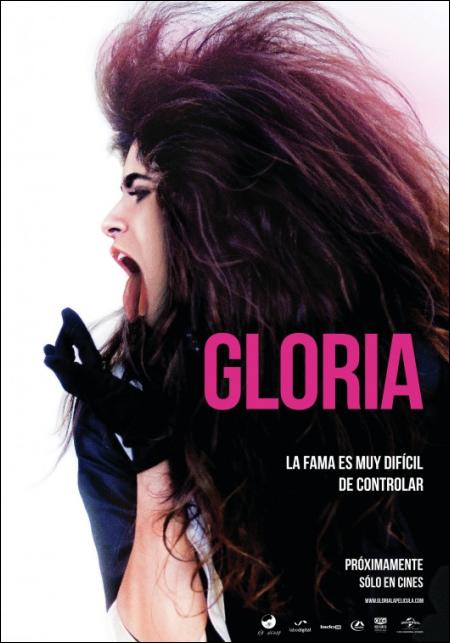A story set in Santiago and centered on Gloria, a free-spirited older woman, and the realities of her whirlwind relationship with a former naval officer whom she meets out in the clubs.
Gloria is a “woman of a certain age” but still feels young. Though lonely, she makes the best of her situation and fills her nights seeking love at social dance clubs for single adults. Her fragile happiness changes the day she meets Rodolfo. Their intense passion, to which Gloria gives her all, leaves her vacillating between hope and despair — until she uncovers a new strength and realizes that, in her golden years, she can shine brighter than ever.
Gloria is Chile’s official entry for Best Foreign Language Film at the 86th Academy Awards, and stars Paulina Garcia in a tour de force performance that captured the Silver Bear Best Actress Award at this year’s Berlin Film Festival.
Interview with Sebastian Lelio
How did the idea of making this film and telling the story of Gloria come about?
Gloria arises from the question of whether there could be a film about the world of women from my mother’s generation, and what this film would be like. It comes from the intuition that a film can sometimes be closer than you think, sometimes even just a few feet away. I wanted to infiltrate this generation’s unknown planet and see what happened there.
There is something moving about these women approaching their 60s who transit through Santiago, Chile, today. Women who fight to find their place in a world that treats them with harshness, who sing in the car, who have been left somewhat on their own, for whom no one has too much time, and that, in spite of the years that have passed, refuse to give up and want to keep on feeling, dancing and living. The film reclaims that right, and it does so from the fascination with an endearing woman who is clinging on to life with her teeth and nails.
The soundtrack plays an important role in the film. What was the music selection process like?
Gloria is a film about feelings. And music (for what can have more feeling than music?) constitutes a central element in this tale, working almost as a Greek choir, constantly contaminating the story. At the same time, the characters express themselves through music, making the emotions of the songs that they listen, sing or dance to their very own, unconsciously commenting on their own lives, as if the music were a mirror of their own processes and dilemmas.
The film’s soundtrack belongs to Gloria’s generation. It contains songs that range from worldwide hits to Latin American and Chilean cult songs. There are some disco tunes, as well as boleros, romantic ballads, salsas, cumbias, some rock’n’roll and one bossa nova: “Waters of March” by Tom Jobim. This last song is very special to me because it was one of the guides that led me to find the final tone for the film. I aimed for Gloria to have something from bossa nova: a poetic of everyday life, a painful sort of levity, a certain natural charm, a little humor and a little pain, but above all, humanity and emotion.
How does Gloria relate to your previous films?
I think that Gloria is the natural consequence of my three previous films. It’s a larger production, with more characters and more locations, but it insists upon worlds that I have explored before, and enquires, from a new perspective, into certain thematic and formal searches that I have developed before in La Sagrada Familia, Navidad and El ano del tigre: the insistent observation of characters going though an evolutionary crossroads; family as a sacred trap; the interest in the tension that exists between person and character; and the conviction that film is a face-on battle.
How would you define the experience with the film’s actors?
Gloria is a character film. Paulina Garcia, the leading actress, was always at the heart of the project. The film was written to her measure. Her counterpart is Sergio Hernandez, an actor that I greatly admire and whom I have gotten to know filming. Both are powerful and magnetic actors, which made things quite a lot easier.
Starting from the basis that if the screenplay is the map, the shooting is the territory (we worked on the screenplay for two years), we generated a set with space for improvisation so that the actors would be compelled to resort to their own intimacies in order to resolve each scene. This allowed for unconscious elements to emanate, material that had “its own laws”, and that finally infected the screenplay with a new strength and ended up becoming the narration’s essence.
Gloria
Directed by: Christian Keller
Starring: Marco Pérez, Osvaldo Ríos, Magali Boysselle, Estefania Villarreal, Ximena Romo, Tatiana del Real
Screenplay by: Sabina Berman
Production Design by: Julieta Álvarez
Cinematography by: Martín Boege
Film Editing by: Adriana Martínez, Patricia Rommel
Costume Design by: Gilda Navarro
Set Decoration by: Martha Camarillo, Roberto Revilla
Music by: Lorne Balfe
MPAA Rating: None.
Studio: Roadside Attractions
Release Date: October 20. 2014 (Mexico)
Visits: 87






